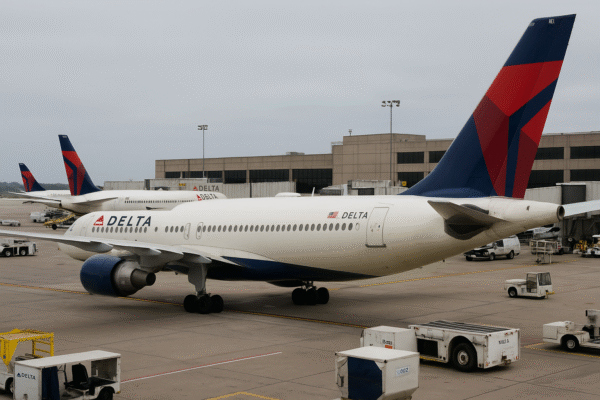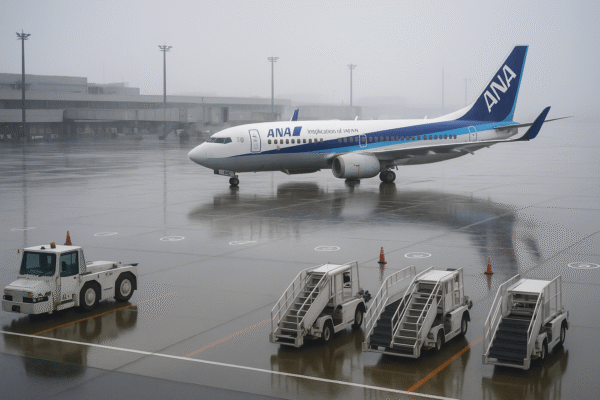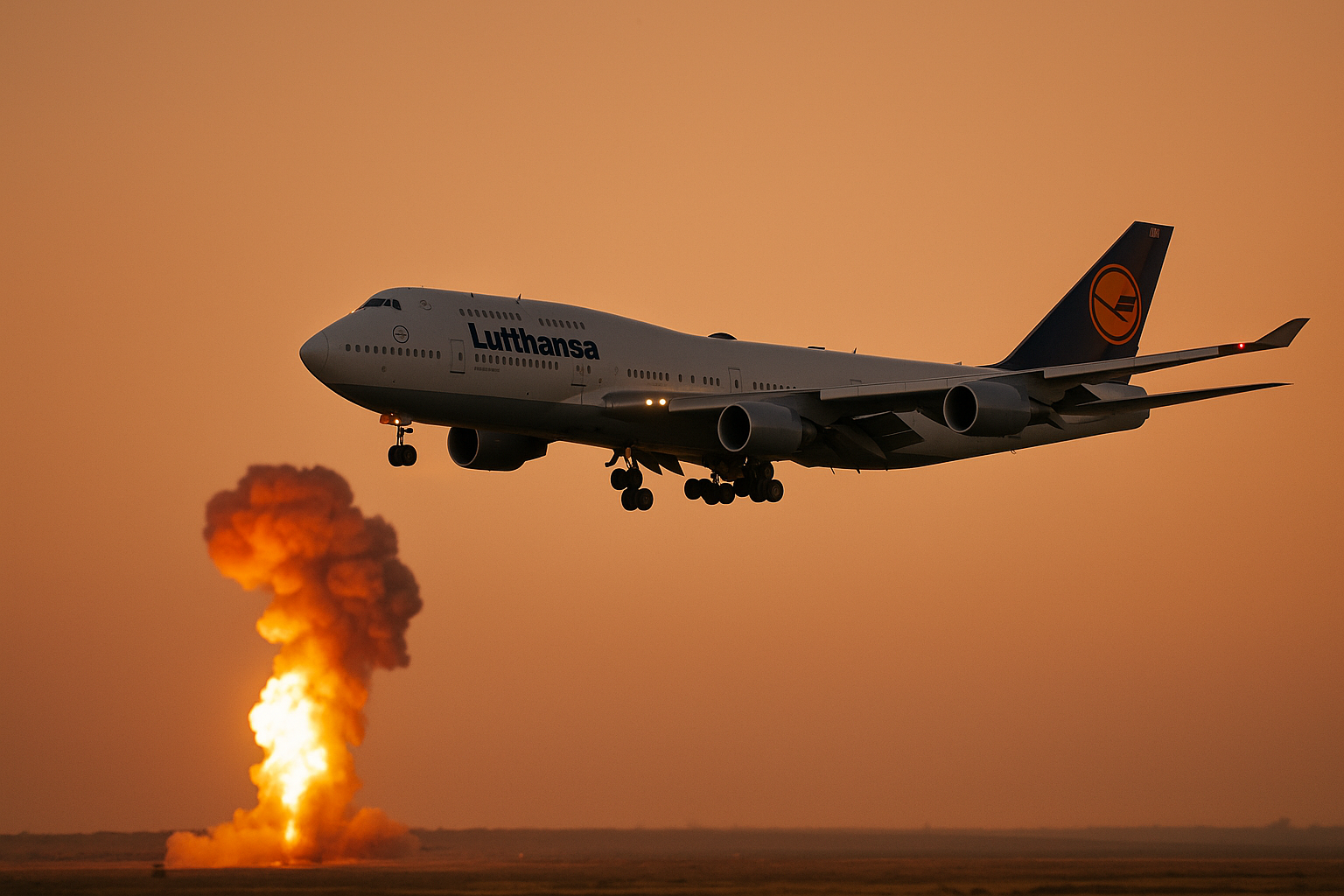The skies over the Middle East, once buzzing with transcontinental traffic, are now hauntingly quiet. Following U.S. airstrikes on Iran’s nuclear facilities, the commercial aviation industry is confronting one of its biggest geopolitical crises in recent memory. Middle East airspace has become a no-fly zone overnight, forcing airlines to reroute dozens of long-haul services—at staggering financial and logistical costs.
The fallout is global. Airlines are scrambling to redraw flight paths. Airports are buckling under redirected traffic. Passengers are stranded or forced to endure hours-long detours. And across the travel ecosystem—from fuel to hotels—the economic pain is only beginning.
Airlines Reroute Around Conflict Zone
Major carriers including Lufthansa, Emirates, British Airways, Singapore Airlines, and Qatar Airways are avoiding Iranian, Iraqi, Israeli, and Syrian airspace. FlightRadar24 tracking data reveals fleets rerouted via the Caspian Sea to the north or deep through the Red Sea to the south, adding up to four hours to flights between Europe and Asia.
Air India, which typically uses the Gulf corridor to connect Delhi to European capitals, has shifted routes over the Arabian Sea and Egypt. Lufthansa has diverted its Frankfurt-to-Bangkok and Delhi routes through southern Turkey and Greece, causing ripple effects in crew rotations and airport slot timings.
The result? Longer flights, higher fuel consumption, overworked crew rosters, and mounting passenger complaints.
Passenger Frustration and Terminal Chaos
The closures have left travelers across key international hubs facing mass delays. At Frankfurt Airport, Lufthansa’s global hub, long-haul passengers reported up to 6-hour delays as rerouted flights caused a backlog in runway and gate availability. In Dubai, Emirates scrambled to reroute dozens of connecting flights, prompting customer service overload and flight reassignments.
Airports in Greece, Cyprus, Turkey, and even Eastern Europe are reporting unusual spikes in arrivals as airlines seek safe stopovers. Athens International Airport has seen an uptick in emergency landings and unscheduled technical stops.
Tourism Industry Faces Wave of Cancellations
Tourism to the broader Middle East has collapsed. Iran, Israel, and Syria have seen nearly 100% booking cancellations for June and July. Tour operators, cruise lines, and luxury travel firms have reported massive losses due to suspended operations, closed borders, and security warnings.
Even countries not directly involved—such as Jordan, the UAE, and Turkey—are seeing inbound bookings dry up due to proximity. According to the World Travel & Tourism Council (WTTC), regional tourism could suffer losses exceeding $5 billion if the crisis stretches into the summer.
In Iran, major hotel chains catering to international travelers have closed operations indefinitely. In Israel, all tour groups and cultural programs have been suspended, while pilgrimage routes to Jerusalem are frozen until further notice.
Governments Activate Emergency Evacuations
Several governments, including Japan, France, and New Zealand, have begun evacuating citizens from high-risk areas. The Japanese government successfully moved citizens from Tehran to Baku, Azerbaijan, while New Zealand’s Ministry of Foreign Affairs has dispatched an emergency military aircraft to assist nationals in the Gulf.
The U.S. Department of State has issued Level 4 “Do Not Travel” advisories for Israel, Iran, and Iraq, and is coordinating emergency departure assistance from Tel Aviv via Athens.
The European Union Aviation Safety Agency (EASA) has updated airlines with a risk bulletin urging them to avoid the Tehran Flight Information Region (FIR) and surrounding danger zones.
Skyrocketing Travel Costs and Economic Pressure
With aircraft burning more fuel and operating on inefficient routes, airlines are already raising fares. Spot pricing for flights from Europe to India and Southeast Asia has risen by as much as 35% since the closure of Middle East airspace.
Experts predict that economy-class fares on routes through Asia and the Gulf could remain elevated for weeks, especially as carriers manage stretched crew schedules, insurance adjustments, and fuel surcharges. Business travelers, already coping with corporate policy restrictions, face canceled meetings and postponed events.
Global carriers are reportedly lobbying aviation insurers and regulators to offer temporary flexibility on route management, emergency crew swaps, and technical stopovers to cope with the ongoing crisis.
Cruise and Cargo Industries Brace for Shockwaves
The effects are not limited to aviation. Cruise itineraries along the Red Sea and eastern Mediterranean are being suspended due to naval security concerns. Maersk, the global shipping giant, has warned that disruptions in the Strait of Hormuz could delay deliveries and increase global shipping costs—adding pressure to supply chains already stressed by recent Red Sea piracy threats.
Tourism-reliant cities like Dubai, Doha, and Abu Dhabi are now navigating reduced cruise calls and canceled package tours. Port authorities have shifted to emergency posture, coordinating with local governments to manage rerouted vessels and displaced travelers.
A Fragile and Uncertain Horizon
Aviation analysts warn that the airspace closures could extend for weeks or even months, depending on political developments. For now, there’s no sign of a diplomatic breakthrough. The aviation world is flying blind into a turbulent summer.
Airlines are urging travelers to remain flexible. Frequent schedule changes, extended layovers, and redirected arrivals are expected to continue. Government officials across the globe are coordinating on traveler safety while re-evaluating diplomatic missions and foreign deployments.
What Travelers Should Do Now:
- Check airline notifications daily for reroutes and delays.
- Avoid non-essential travel through or near the Middle East.
- Reconfirm all long-haul itineraries, especially those involving Asia and Europe.
- Monitor government travel advisories and enroll in crisis assistance programs like STEP (for U.S. citizens).
- Consider trip protection policies with geopolitical coverage.
For more travel news like this, keep reading Global Travel Wire
















